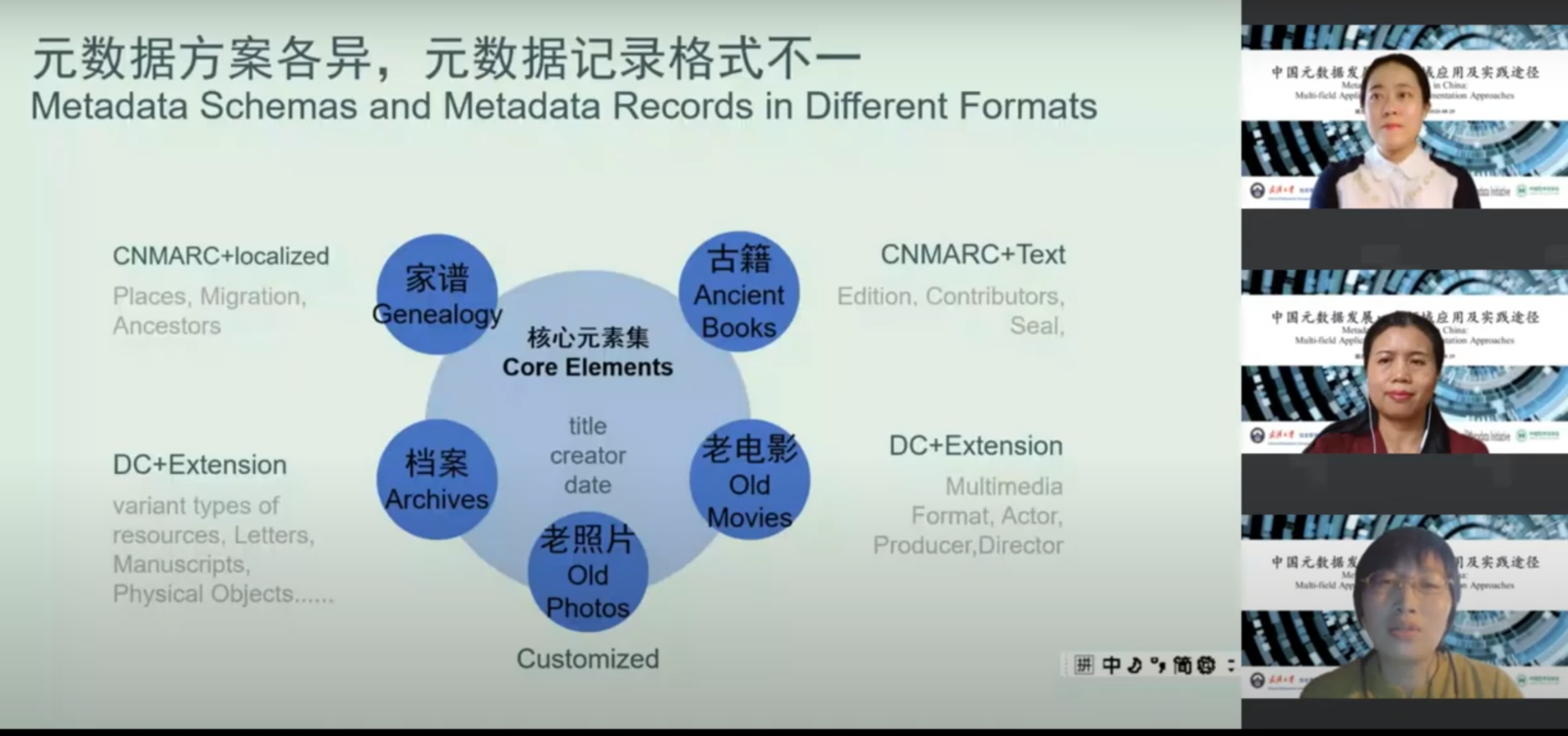Metadata Developments in China

Metadata is widely applied in China within political, cultural, scientific, and educational contexts. Various national and industry metadata standards have been established, promoting data value mining, sharing, and communication. Presenting Chinese experience to an international audience is helpful for the development of metadata-related research and practice.
Chinese libraries have established several government information metadata standards. Three government information projects (National Library's Government Information Integration Service Project, Government Website Archiving Project, and Government Open Data Project) have been launched. These projects promote the establishment of Chinese government resource metadata standards and the integration of government information. Future metadata development strategies in government information integration and for the open government data movement have been proposed: (1) to strengthen the breadth and depth of government resources integration; (2) to strengthen the openness and sharing of government information resources.
In the cultural context, Shanghai Library has built multiple digital humanity programs since 2015, including a genealogy program, archive program, ancient book program, manuscript program, and city memory program. Metadata schemas and metadata records in projects are in different formats. To incorporate heterogeneous metadata solutions into an integrated knowledge organization system, Shanghai Library gives all resources cool URIs as global identifiers and locators, and links everything together. All metadata records of different resources in different formats are transformed into RDF. More semantic data are enriched into RDF data by extracting structural data from the content of resources or web information. Now Shanghai Library is providing authority control service for persons, places, times, events, etc., in a web-scale, digital humanity service for researchers, and an open data (APIs) service for developers.
Diverse types of scientific and technological (S&T) resources, and their massive scale, create big challenges for Chinese S&T resource management. There remain multiple problems, for example, decentralized resources and virtualized supervision, repeated waste of resources, and inadequate systematization and systemization of standards. Metadata is viewed as an effective solution for S&T resources location and discovery, search query, sharing and integration, and management. National Technical Committee 486 on Science and Technology Infrastructure of Standardization Administration of China promotes the establishment of an S&T resource metadata standard system, which includes metadata basic standard, metadata content standards, metadata archiving standard, and metadata cross-platform retrieval standards. Currently, these metadata standards for S&T resources have been applied to fifty national S&T platforms.
In the past ten years, a growing number of educational resources have emerged. China pays great attention to the development of educational resource metadata standards. Four industry standards, three national standards, and one regional standard have been released so far. Chinese national education platform "iCourses" have applied educational resources metadata on its website. However, there remain problems. Some standards may be outdated. There is a lack of a national-level implementation guide. Moreover, Chinese standards are weakly aligned with international ones. With the development of open education resources, the application of metadata on educational resources organization needs to be further enhanced.
Social media is an important way for people to obtain and disseminate information in the context of public emergencies. It is necessary to explore an effective way to organize information with metadata in accordance with the characteristics of public emergencies. Using metadata standards, natural language processing techniques, and appropriate resource association methods, an information organization structure of social media under the public emergency is being put forward. The metadata description framework of microblog posts about public emergencies describes four types of information (information source, information content, information form, and influence of information) with multiple elements. Social media analysis can be conducted based on metadata, i.e. measuring the topical influence and sentiment contagion of event stakeholders.
These developments were presented in an August 2020 webinar, "Metadata Developments in China", which was co-organized by Wuhan University, the DCMI Education Committee, and the Library Society of China and hosted by the School of Information Management at Wuhan University. Video recordings of all presentations are available both in English and in Chinese.
